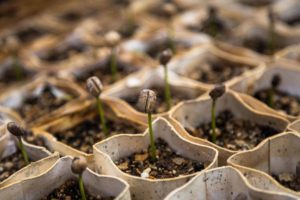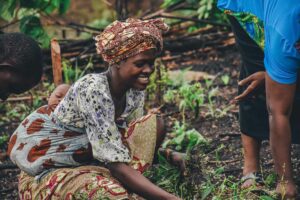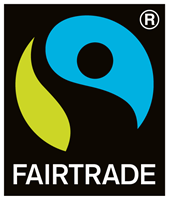How is climate change affecting farmers?
Climate change is negatively affecting rural communities and small-scale farmers. Those in rural areas in developing counties are most vulnerable to climate change. This includes small-scale farmers and their surrounding  communities, many of which we are reliant on to grow our food. The changes to the climate are helping spread crop diseases such as coffee lead rust among many other pests. Global warming and rising temperatures impact crop yield and quality. As production falls, farmers struggle to earn a living and support their families. Widespread drought is expected to impact many of the main producing countries, dramatically reducing yields for several crops including coffee. This predicted decrease in yields is extremely concerning considering the need to increase production by 50% as the population reaches an expected 9.1 billion in 2050. In real terms, global food production needs to increase by 75% to provide enough for global human survival.
communities, many of which we are reliant on to grow our food. The changes to the climate are helping spread crop diseases such as coffee lead rust among many other pests. Global warming and rising temperatures impact crop yield and quality. As production falls, farmers struggle to earn a living and support their families. Widespread drought is expected to impact many of the main producing countries, dramatically reducing yields for several crops including coffee. This predicted decrease in yields is extremely concerning considering the need to increase production by 50% as the population reaches an expected 9.1 billion in 2050. In real terms, global food production needs to increase by 75% to provide enough for global human survival.
Urgent and large-scale action is essential to support these farming communities as they mitigate and adapt to the effects of climate change. Solving climate change requires numerous global approaches. Supporting farmers to reduce their emissions and adapt to climate change in several different ways from technical to financial, enables climate change to be tackled fairly. Furthermore, supporting vulnerable communities in their carbon reduction journey, in turn, supports sustainable development and tackles the issues created between climate justice and social justice. One way of doing this is by purchasing items with the Fairtrade certified logo.
Fairtrade and climate change
There are three parts to Fairtrade’s climate change strategy: adapt, reduce, and advocate. Fairtrade International is implementing projects focused on climate change adaption. By providing climate change adaption training and supporting producers to carry out their own risk and opportunity assessments, produces will become stronger and able to deal with the changing climate. The training involves local communities and is based on local knowledge  and expertise, making the most of available resources. By identifying risks and opportunities with their farms, personal adaptation plans can be created empowering them to deal with future challenges they will face and ensure minimal effects to produce.
and expertise, making the most of available resources. By identifying risks and opportunities with their farms, personal adaptation plans can be created empowering them to deal with future challenges they will face and ensure minimal effects to produce.
The second element of their strategy is to reduce. By establishing carbon projects that are producer-owned and involve community participation, vulnerable communities can make the required changes to adapt to climate change while becoming more resilient. Through the scheme, they will receive economic benefits to invest in tackling climate change. The aim is to create greater traceability and transparency in the carbon market. Reducing emissions and compensating for those already emitted is key to reducing the intensity of global warming.
The final aim of Fairtrade’s climate change strategy is to advocate. They believe the voices of producers should be heard at international climate change discussions and should play a key role in forming climate change strategies. Since the UN annual Climate Change Conference in 2010, Fairtrade has been bringing the voices of farmers to international leaders and demonstrating the fundamental role Fairtrade plays in the solution to climate change.
We need to ensure that everyone has access to resources to mitigate and adapt to climate change. Producers that Fairtrade supports are essential in providing us with products that we rely on daily. Purchasing items with the  Fairtrade certification logo has a massive impact not only on the local community it is sourced from but the global climate. Look out for the logo and show your support this Fairtrade Fortnight.
Fairtrade certification logo has a massive impact not only on the local community it is sourced from but the global climate. Look out for the logo and show your support this Fairtrade Fortnight.






